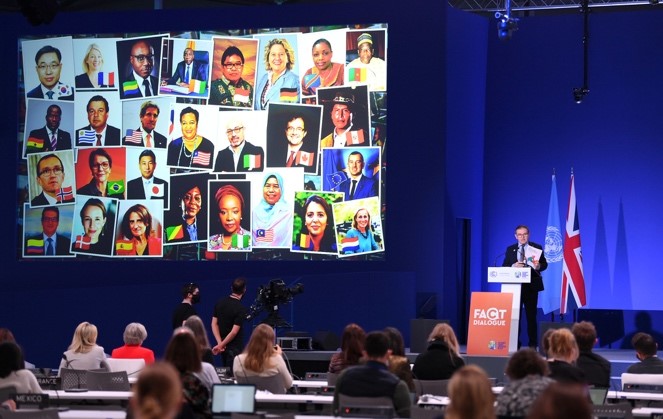Today marks the last day of COP26. It has been an eventful fortnight in Glasgow, with world leaders, activists, indigenous peoples and business leaders having come together with the one common goal of securing global net zero by 2050 and limiting the temperature increase to 1.5°C by 2030 (Paris Agreement).
What is COP26?
COP26 stands for the 26th Conference of the Parties summit, an annual UN climate change conference. Hosted by the UK and Italy this year, it has brought almost 200 countries together to discuss and negotiate changes to current (insufficient) efforts towards environmental targets.

Why is it important?
It is widely accepted that “climate change is one of the greatest challenges of our time”. It is a global issue, demanding international cooperation to address the myriad of factors that contribute to its catastrophic impacts. It is both an environmental and social problem, as the most geographically and economically vulnerable countries lack the financial means to adapt to the changing climate, despite being the smallest contributors to the world’s emissions.
It is therefore imperative that major emitting nations with strong economies need to not only heavily reduce their emissions, but also support developing countries with the implementation of new technologies. This conference facilitates the conversation and coordination of nations for exactly this purpose, by holding responsible entities accountable, mobilising financial investment to advance research, development and accessibility of sustainable solutions, and taking steps to protect communities and ecosystems.
On top of this, COP summits have two very important by-products. First, they enable communication between world experts in relevant fields such as scientific and engineering research, policy-making and economics. Second, they have an important role in raising global awareness about the urgency of this problem, which is crucial to bring about behavioural change and effective cooperation with the public.
Imperial at COP26
Over the past two weeks, delegates of Imperial’s Grantham Institute have also shared their research and expertise at the conference, contributing to the development of policies and informing financial investments in climate research and adaption.
So, what next?
It is important that we take these annual summits as reminders of the need for big-scale innovation, as well as responsible and sustainable policy-making and investment. Countries have now reviewed and updated their official commitments to protect and restore the planet, though there are still discussions to be had on the credibility of these goals. But apart from keeping yourself informed, what difference can you actually make as an individual? There are various steps you can take to make a difference in your daily life, as well as societies, campaigns and projects to get involved in. Or why not, consider pursuing one of the increasingly eminent sustainability-focused career paths and companies.

